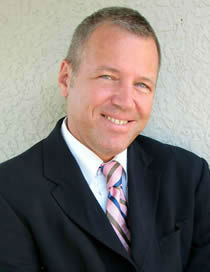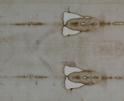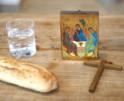
Spirituality
But what exactly is folly? It's not the same as ignorance, a mistake, or even bad judgment. It seems more fundamental than that. It is some kind of a very gross error, a carelessness over the most important matters, which it is shameful to get wrong.

Pakaluk
I want to convince you that folly is real, and that Christ gives us the remedy for it.
Folly or foolishness is deplored by Our Lord. Remember the man who filled up his silos with grain, and planned on enjoying himself for many years in a life of ease? "You fool!" God says to him, "This night your soul is required of you; and the things you have prepared, whose will they be?" (Lk 12:20).
He calls the Pharisees fools also: "Now you Pharisees cleanse the outside of the cup and of the dish, but inside you are full of extortion and wickedness. You fools! Did not he who made the outside make the inside also?" (Lk 11: 39-40).
He even makes a parable which contrasts the wise with the foolish. "Then the kingdom of heaven shall be compared to 10 maidens who took their lamps and went to meet the bridegroom. Five of them were foolish, and five were wise," (Mt 25: 1-2). The foolish ones failed to acquire oil for their lamps and later tried, unsuccessfully, to bum some off of the wise ones. The Lord says to them in the end, "Truly, I say to you, I do not know you," (12).
Clearly, folly is an important idea for the Lord. Therefore, it should be so with us. But what exactly is folly? It's not the same as ignorance, a mistake, or even bad judgment. It seems more fundamental than that. It is some kind of a very gross error, a carelessness over the most important matters, which it is shameful to get wrong.
Perhaps proverbs can help us. Many of them describe folly or warn against it. "Pennywise and pound foolish" -- that's someone who, while taking pains over small sums, neglects big sums of money. Then there's "A fool and his money are soon parted," and "A man who is his own lawyer has a fool for a client." These proverbs show that we regard someone as foolish when he does not look after his own interests well. After all, we expect each person to be familiar with his self-interest, as he is closest to it. Also, to take responsibility for his own interest -- because if he does not, who will?
We see something else in the proverbs, especially, "pennywise and pound foolish" -- it's that folly involves some kind of lack of proportion, which looks ridiculous. It's absurd to put a lot of effort into small things, and, precisely by doing that, to get big things wrong. The saying "gilding the lily" is like that, too: it's foolish to waste precious gold on something that can't be improved by it.
People sometimes fail to take care of their own interests because they don't know who they are. The man with the silos filled with grain was like that. He effectively believed he was his body. Even though he refers to his soul, he acted as though he had no soul. "So is everyone who lays up treasure for himself, and is not rich toward God," Our Lord says (Lk 12:21).
Imagine some foolish person who saved up for retirement with a large stash of Monopoly money. He's foolish. The money is worthless where he's going. He's made no provision for himself.
The man with the silos also exhibits an absurd lack of proportion. He put a lot of effort into planting seed, tilling the ground, harvesting the crop, and loading it into barns. "I will do this," he says, "I will pull down my barns, and build larger ones; and there I will store all my grain and my goods." But in the end it led to nothing. He expended great effort on things of passing value, and no effort at all on things of eternal value -- disproportion, and folly. Likewise the Pharisees were absurd to care for externals but not interior life.
What is Our Lord's answer to folly? First, note what he does not say. He does not say that farmers shouldn't take care of their crops. Or that the Pharisees shouldn't care about their external actions. Similarly, it's not particularly virtuous to be pound wise but penny foolish. The remedy for folly's absurd disproportion is not to give up on the less important things. At least the laity, who do not renounce the world, are not meant to do so.
In the tradition, Psalm 1 was believed to point us towards wisdom. It makes good reading in Advent. "Blessed is the man ... whose delight is in the law of the Lord, and on his law he meditates day and night. He is like a tree planted by streams of water, that yields its fruit in its season, and its leaf does not wither. In all that he does, he prospers."
But Our Lord then interprets what this prosperity means: after his Passion, it is inseparable from the way of the cross. "It pleased God through the folly of what we preach to save those who believe," St. Paul said, "For the foolishness of God is wiser than men, and the weakness of God is stronger than men," (I Cor 1:21-25). The beauty and mystery of the cross is that it has the marks of human folly -- a lack of regard for self-interest, and a shocking disproportion. But Our Lord converts these marks into salvation for us and the true path for helping others.
- Michael Pakaluk is Professor of Ethics and Social Philosophy in the Busch School of Business at The Catholic University of America. His book on the gospel of Mark, ''The Memoirs of St. Peter,'' is available from Regnery Gateway.
Recent articles in the Spirituality section
-
He saw the cloths and believedBishop Robert Barron
-
God's instrument for viewing the crucifixionMichael Pakaluk
-
QuinquagesimaMichael Pakaluk
-
Pro-life Christians: Now is the time to shout from the rooftopsBishop Robert Barron
-
Seeking an indulgence as an act of faithMichael Pakaluk


















